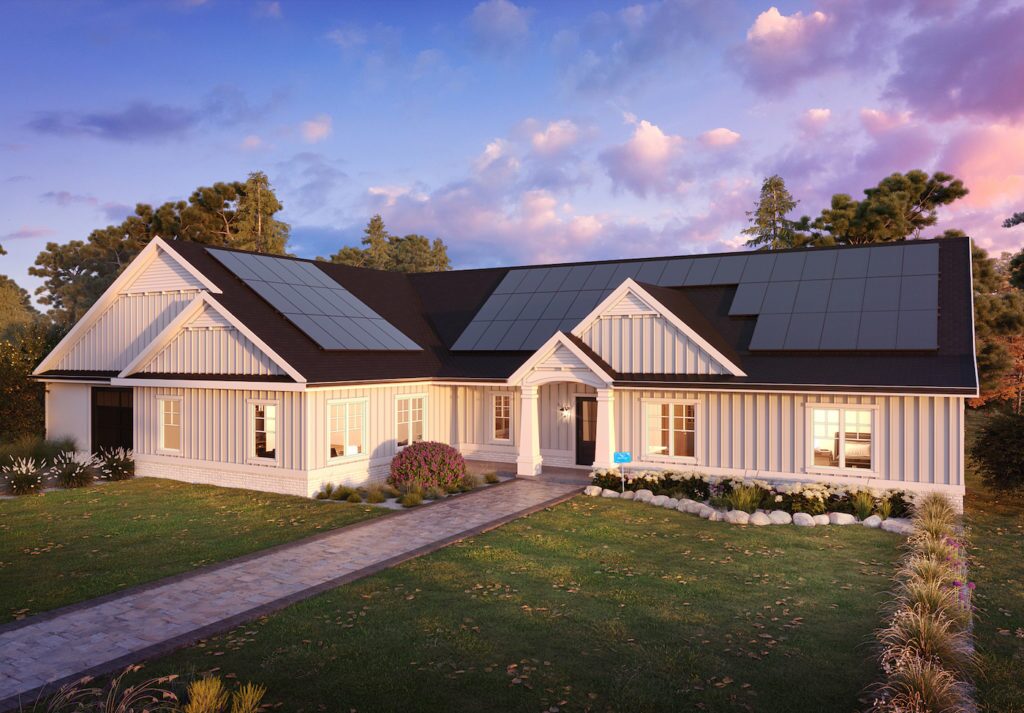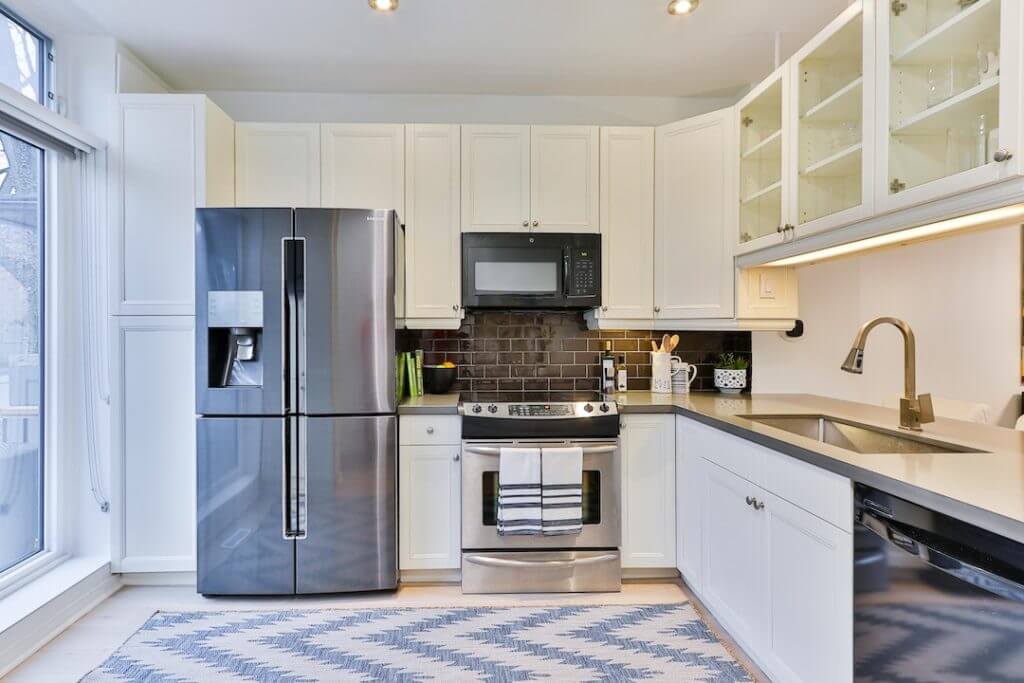

When a homeowner makes the switch to solar, the electricity they need to power their home comes from the energy produced by their solar panels instead of the utility company. Solar companies like Blue Raven Solar gather data and use tools to determine how many solar panels a home will need to fulfill its needs each month.
If you want your system to cover 100% of your energy needs each month, Blue Raven will provide enough solar panels for that to happen. Plus, with our two-year production guarantee, we will ensure that your solar panels are producing as much as we said they would. If they’re not at the end of the two years, we’ll upgrade your system free of charge.
That being said, everyone who uses electricity (and that’s just about…everyone) should make an effort to reduce their electricity usage whether or not they have solar panels or not, for a number of reasons.
If you get your power from solar panels, then the less energy you use, the less likely you are to use more power than your panels produce. Plus, using less energy can make you money through net metering credits through your utility company. Basically, if your panels are producing power that you’re not using, you can sell that power back to the grid. If you get your power from a utility company, then the less energy you use, the more money you save and the friendlier you are to the environment.
There are countless ways to reduce your energy consumption, ranging from small changes you can make to everyday life to major purchases or improvements to your home. We’ve rounded up 10 ways you can use less energy, and in turn, save money and the environment.
1. Use a Laptop
Using your laptop instead of a desktop or monitor is an easy way to save energy. Laptop computers use 80 percent less energy than desktops, peaking at about 60 watts while desktops peak at about 175 watts. Plus, putting your laptop in “sleep mode” when you’re not using it or not leaving it plugged into the charger will not only conserve power and save you money, but it may also extend the life of your device!
2. Avoid Phantom Power
Phantom energy or “vampire power” is the power that your home or electronics use while they are not actually being used. Examples may include lights that are left on when you leave a room, appliances that are left plugged in even when you’re not using them (think coffee machine), chargers that aren’t charging anything, etc.
You may not think about these things very often, but phantom power can sometimes make up as much as 20 percent of your monthly electricity bill! Think about that—you could be saving 20 percent on your electricity bill by just unplugging appliances or turning off lights. Dads everywhere begging their children to turn off the lights when they left the room were right, it can make a huge difference!

3. Conserve Water
Using less water will not only help you save on your water bill, but it can also have a big impact on your electricity bill. Why? Because heating water is expensive…your water heater is a major contributor to your energy consumption.
If you don’t want to replace your water heater with a more energy efficient one, an easy solution is to simply use less hot water. If only two people in your home cut their hot shower time by one minute, you could save over $30 a year. You can also fix any leaky faucets and turn off the water when shaving, washing your hands, brushing your teeth, or washing dishes to conserve hot water usage.
4. Do Your Laundry… Better
Your washer and dryer are also major contributors to your energy consumption, but there are simple ways to launder better. Run full loads, use cold water instead of hot, hang dry some of your laundry, and cut drying time by buying a dryer ball or adding a dry towel to dryer loads.
Also, try to reduce laundry loads by re-wearing clothes that don’t get dirty easily, like sweaters, coats, scarves, work clothes, etc. You can save hundreds of dollars every year by doing less laundry and doing it better.
5. Avoid the Oven
As you may have guessed, your oven also uses a lot of energy and can easily be avoided for everyday use. Avoiding the oven, especially during the summer months, will reduce the heat in your home and save you money. Salads, smoothies, barbecues, or sandwiches are great alternatives to oven meals in the summer.
And, with the invention of a plethora of kitchen appliances, you can reduce your oven use year-round. Crockpots, pressure cookers, air fryers, toaster ovens, and microwaves all use less energy than your oven, and may even be faster and easier to use in many cases.
For example, a microwave takes 15 minutes to do the same job as one hour in the oven.
6. Use LED Lightbulbs
When we install solar panels on a customer’s home, we also replace all their lightbulbs with LED lightbulbs. They’re more efficient, better for the environment, and while they may be more expensive than incandescent lightbulbs, they’ll save you more money in the long run. For more information on LED lightbulbs, read our blog: LED light bulbs: Do they really make a difference?
Another way to use less energy whether or not you have LED lightbulbs is to promote natural lighting through windows throughout your house, or to use small lamps or under-counter lights instead of turning on the lights in the whole room or home.
7. Use a Smart Thermostat or Turn Off the AC
We also replace a home’s thermostat with a smart thermostat when we install a solar panel system. Smart thermostats help save you money by leverage sensing, processing, and wireless communication technologies to maintain your home’s ideal comfort levels while lowering monthly energy use.
If you can’t afford a smart thermostat at the moment, you can manage your thermostat manually or program your current thermostat to turn off or reduce heating and cooling during the times when you are asleep or away. By programming your thermostat, you can save almost $200 a year, and smart thermostats will help you save even more.
8. Smart Plugs
Smart plugs or smart power strips are a great way to reduce phantom power. They shut off power to appliances or electronics when they are not being used or can be set to turn on and off at certain times during the day, during periods of inactivity, based on the status of another device, or even through remote or voice activation. Smart plugs are relatively inexpensive, but the price may add up if you want to make your whole house “smart.”
Unplugging devices or turning off lights can be a great alternative to smart plugs, but in the long run, smart plugs will save you time, money, and energy used when reminding your family members to turn off the lights.
9. Replace Appliances
Replacing appliances can be expensive, but energy efficient appliances can help save money on monthly expenses. Older appliances like refrigerators, washers, dryers, water heaters, dishwashers, etc., use more energy and lose efficiency over time. While it may not make sense to head to the appliance store and replace everything right away, you may focus on the oldest appliances in your home first or simply replace things as they reach the end of their life with more energy efficient options.
For more information on appliance life expectancies and replacing old appliances, read our blog: Home Improvements for Energy Efficiency

10. Install New Windows or Fixing Air Leaks
Installing new windows or fixing leaks in your home is another pricier home improvement option to cut down on your energy usage, but it may pay itself off quicker than you’d think. Modern windows can block heat from getting in from the sun and trap air or heat from your AC and heater from escaping. While it might be pricey to replace all the windows in your home, these windows will help save hundreds every year.
If you don’t want to purchase and install new windows throughout your house, you can fix air leaks on your windows, doors, and any other openings in your home. Replacing windows or fixing air leaks will reduce your heating and cooling expenses.
Solar panels are a great way to reduce your carbon footprint by helping prevent harmful carbon emissions from being released into the atmosphere. However, even with solar panels, homeowners should aim to reduce their energy consumption and lead sustainable lives.
If you don’t have solar panels yet, then all the more reason to adopt these tips to save money paid to the utility company and use less harmful fossil fuels for energy consumption. From small, everyday actions like turning off the lights, to bigger purchases like buying a new appliance to replace an old one, what will you do to use less energy?



Sorry, the comment form is closed at this time.